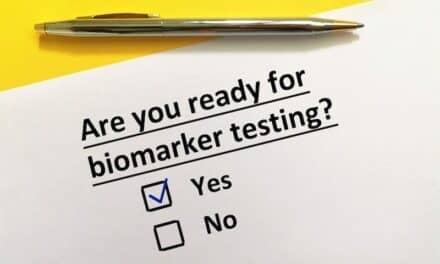HiberCell, New York, and Biodesix, Boulder, Colo, announced an agreement to further the development of an enzyme-linked immunosorbent assay (ELISA) as a companion diagnostic in future registrational trials in breast cancer for Imprime PGG programs. Terms of the partnership were not disclosed.
Biodesix leverages multiple technologies with its proprietary artificial intelligence platform to discover, develop, and commercialize diagnostic solutions for unmet clinical needs. Through this agreement, Biodesix will continue its leadership in clinical proteomics by developing a companion diagnostic to select patients for enrollment in HiberCell’s future registrational clinical trials. The ELISA test, which will be validated in Biodesix’s NYS CLEP-approved and CLIA-accredited lab, will be designed to test for Anti-β Glucan IgG Antibody (IgG ABA) expression in breast and melanoma serum samples to assess cancer patients’ eligibility for Imprime PGG therapy.
“We are pleased to partner with Biodesix to further enable our patient stratification capabilities for our lead clinical asset, Imprime PGG,” says Alan C. Rigby, PhD, co-founder and chief executive officer of HiberCell. “We look forward to a robust collaborative effort with the Biodesix team that is initially focused on rapidly identifying patients for our Imprime PGG clinical trials, while supportive of our efforts to bring a potentially transformative portfolio of therapies to patients living with hard-to-treat recurrent metastatic disease.”
“Biodesix is excited to collaborate with HiberCell across their promising portfolio,” says Scott Hutton, president and chief executive officer of Biodesix. “Our leadership in clinical proteomics along with our comprehensive approach to diagnostic discovery, development, and commercialization will help streamline and accelerate HiberCell’s ability to bring critical therapies to patients. Working together on a companion diagnostic for the Imprime PGG program is only touching the surface of what we can do together. This approach to identifying patients for this drug is very novel and holds tremendous promise.”





